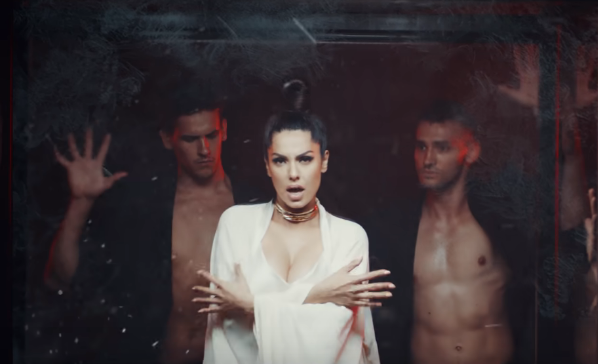
Who was reliable this year? In Vivo, Mia Borisavljević, Cvija, DJ Shone and Dzidza. Thanks to all five of them for keeping on keepin’ on, in a year of otherwise low-quality Serbian pop-folk dominated by a watered-down trap sound. Tanja Savić’s Stranci was superlative and artful, one of the best songs of 2019, and Nikola Petković’s subversively campy Bezobrazna was a real grower. This was a breakthrough year for producer, composer and rapper DJ Mene under his new moniker Tozla – his solo singles Ne bih te menjao za sto and Mala je droga were fantastic dance tunes that wisely avoided the overdone trap trend, and his songs with Tea Tairović, Kaya Ostojić, Ljupka Stević and Kristina Bralo kicked ass too. Girl group Hurricane and new-generation singers Senidah, Angellina and Edita all generated major buzz this year, yet their mellow, low-key Spotifycore tracks weren’t really to my taste – Edita’s Životinje was perhaps the best of the bunch, and her cover of Lepa Brena’s Jugoslovenka with Sunaj Ibraimović was a great tribute to pop-folk past. Nextdoor in Bulgaria, Ilian was also a delight on the brilliant Ya se uspokoy, the fun Mashina and the ridiculous Nova Magistrala.
Who underwhelmed this year? Maya Berović, Teodora, Nikolija and MC Stojan. Maya’s biggest weakness has always been that her songs in each era can sound very samey. This was somewhat true when Damir Handanović wrote most of her output (2012-2015), but is even more the case now that Jala Brat and Buba Corelli have been penning almost all of her songs for the past few years. Individually they’re alright but together they just become a kind of sonic grey goo… and that kitsch, fun edge of her pre-2016 tracks is gone. Teodora was OK, but her material this year couldn’t live up to 2017’s Kristijan Grej or her former material with Djavolice. After the highs of 2016-2017, Nikolija’s tracks have also increasingly embraced a trap sound, and this is a problem not just for her but the whole genre. Serbian pop-folk is about strong beats and strong emotions, whereas trap has neither – its characteristic melancholy is far more strung-out and apathetic than the tearful fury of the best turbofolk. The sole exception to this in 2019 was Relja’s stellar Tuga iz Porschea, which managed great emotional depth amid a gorgeous, impeccably produced trap soundscape. Stojan, meanwhile, is more popular than ever, but at the cost of turning himself into a living meme, and his career now seems more focused on low-comedy videos designed to go viral than on good club tunes.
Who was underrated this year? The charismatic and highly capable Ivana Krunić, who’s worked solidly on her post-Luna solo career and released strong songs. Kriziram was a particular delight, harking back to the genre sound of 3-4 years ago. Plus MC Yankoo, who’s largely ditched the terrible faux-American English and reverted to more serious (yet still fun) output in naš jezik; tracks like Neka traje and Amajlija were solid as hell. And shout-out to Nadica Ademov and Jana for their awesome cover of a Kosovan trap-folk megahit, making it darker and fiercer in the process. Plus nobody expected Croatia’s Kristina Boban to drop this awesome banger on Dallas Records.
Who is sorely missed? Dunja Ilic, still. JK, as ever. Xhesika Polo, just generally. And the whole “angry wronged diva” side of turbofolk in general. The problem isn’t that the genre is losing its fun and flamboyance (which it is), it’s that it’s losing its anger and sadness too. It’s that combination of strong raw positive and negative emotions (typically from a female or coded gay male perspective) in boozily buoyant dance tracks laced with folk influences that has made Serbian pop-folk so addictive and resonant for the past 15 years. Here’s hoping for an uptick in the 2020s – we can reliably assume that trap will fizzle out in a year or two, just as dubstep did five years ago, and that Serbian pop-folk will continue to grow and change, embracing and pioneering new trends and influences.